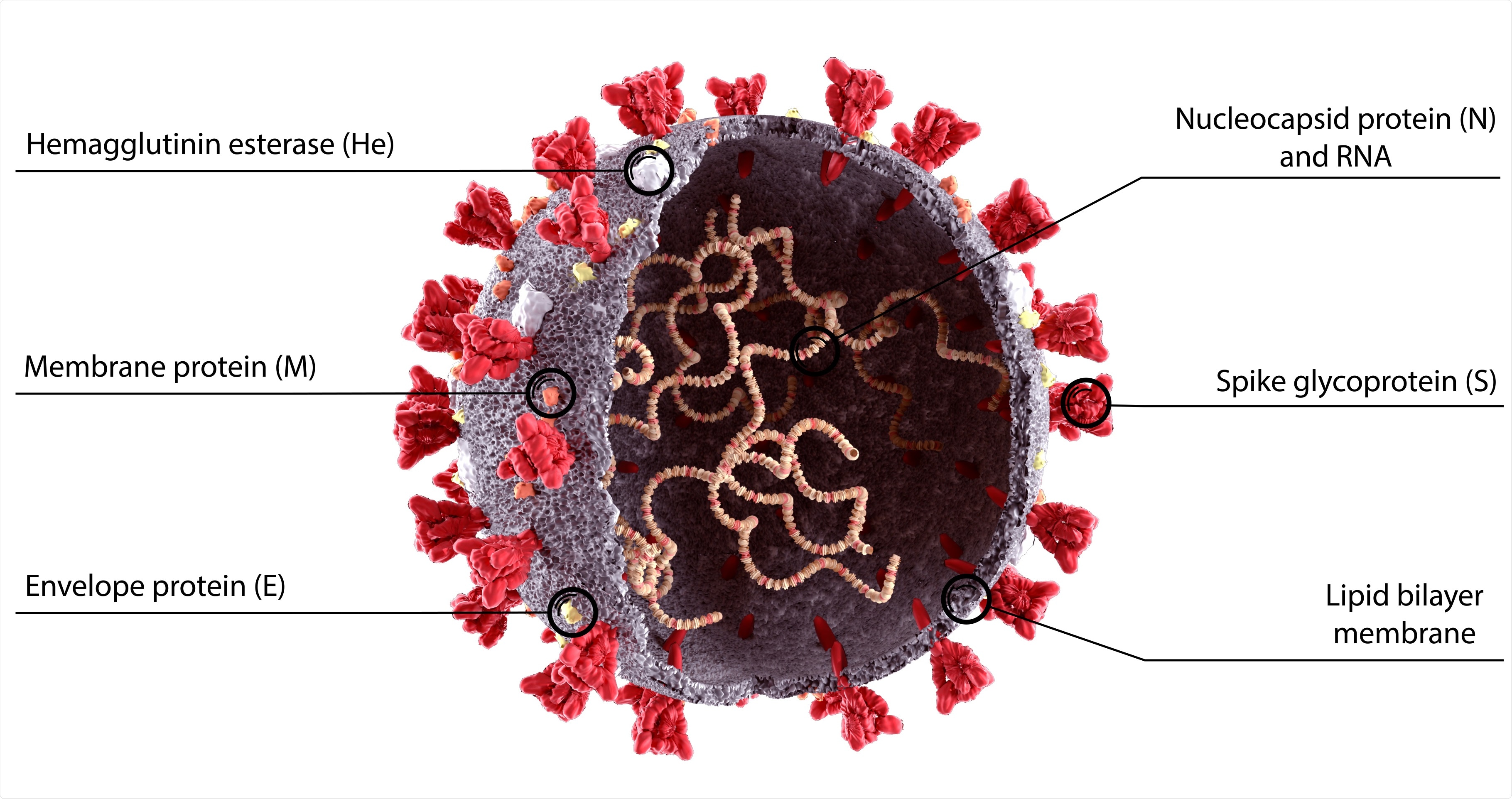As cases surge in the United States, health experts have raised the alarm that vaccinated individuals may be spreading the severe acute respiratory syndrome coronavirus 2 (SARS-CoV-2) Delta variant. Over half of new infections in the U.S. are now caused by this highly transmissible variant.

Severe acute respiratory syndrome coronavirus 2 (SARS-CoV-2) illustration. Image Credit: Orpheus FX / Shutterstock
On May 11th, 2021, the World Health Organization (WHO) declared the B.1.617.2 a variant of concern (VOC). The novel variant is highly infectious, transmissible, and may increase the risk for hospitalization.
First detected in the Indian state of Maharashtra in October 2020, the variant has caused surging cases in the U.S., accounting for over 50 percent of all new infections.
Among the 20 mutations identified in the Delta variant, two are perhaps crucial for making it transmit more effectively than older strains. The early Indian reports described it as a "double mutant."
The first is the L452R mutation, also found in the Epsilon variant which is classified by the WHO as a variant of interest. The mutation makes the spike protein more infectious by increasing its ability to bind to human cells.
In addition, the Delta variant dominates vaccine-breakthrough infections with higher viral loads in the respiratory tract, in comparison to non-Delta variants. Furthermore, it results in greater transmission among fully vaccinated healthcare workers.
Researchers at the Guangdong Provincial Center for Disease Control and Prevention have found that the variant grows more rapidly inside people's respiratory tracts and at much higher levels.
Infection with the delta variant of the coronavirus resulted in more than 1,000 times the number of virus copies in the respiratory tract than infection with the original strain, the study found.
Additionally, after catching the delta variant, the person is likely to become infectious sooner. As compared with the original coronavirus variant, the delta variant took about four days to reach detectable levels inside a person, whereas the latter took six days.
There are reports that the delta strain may cause different symptoms than other variants. As one example, a U.K. study that reports symptoms tracked through an app showed changes in the top-ranking symptoms since delta began to dominate.
Cold-like symptoms, such as headaches, runny noses, and sore throats, now top the list in the ongoing study, while more traditional COVID-19 symptoms - loss of smell, shortness of breath, fever, and persistent cough - have fallen. A similar trend is being observed in the U.S. as well, especially in places with high delta cases.
With the Delta variant now circulating in the U.S., there may be a surge in new cases, most of which will be among those without vaccination. However, the biggest threat is when people do not adhere to infection control protocols. A Delta variant that can evade neutralizing antibodies from natural infection and vaccination may lead to major disease outbreaks.
There were just 10% of cases of the Delta variant around a month ago, but it represented about 30% of cases in the week ending June 6. According to the CDC's estimates for the two weeks between Jun. 20 and Jul. 3, the Delta variant accounted for 51.7% of Covid-19 cases in the U.S.
The number of global SARS-CoV-2 infections has reached over 185 million cases, with the death toll topping 4 million. The United States reports over 33.7 million cases, followed by India, with 30.7 million cases.
CDC's new guideline on fully vaccinated people
The CDC recommended that fully-vaccinated individuals resume activities without wearing masks or physical distancing, except where required by rules or regulations. But the spread of the Delta variant has influenced some U.S. areas, such as Los Angeles County, to reimpose making guidance for all residents, regardless of vaccination status.
Dr. Anthony Fauci, director of the U.S. National Institute of Allergy and Infectious Diseases and the chief medical advisor to the U.S. President, has encouraged vaccinated residents to wear masks in areas with high transmission and low vaccination rates to protect themselves from novel variants.
In addition, the CDC advises that fully-vaccinated persons can resume domestic travel even without testing before and after departure or self-quarantine after reaching their destination.
Before departing for international travel, fully vaccinated people do not need to be tested unless required by the destination. In addition, vaccinated travelers are also released from self-quarantine when they return to the U.S.
The CDC based their new guideline on principles showing that indoor or outdoor activities pose minimal risk to fully vaccinated people. They have a reduced risk of transmitting SARS-CoV-2 to unvaccinated people. However, the CDC emphasized that fully vaccinated people should continue to follow any applicable law, rules, or regulations imposed by the government on infection control measures.
Though vaccines are still effective in preventing severe disease and hospitalization, health experts warn vaccinated individuals to comply with mitigation strategies to prevent the spread of the virus. COVID-19 vaccines do not prevent infection. Instead, they are formulated to defend the body against the virus. COVID-19 can cause mild, cold-like illnesses in vaccinated individuals. It is also possible for others to become infected but never realize it, thereby spreading the disease silently.
WHO’s Science in 5 on COVID-19: Delta variant - 5 July 2021
Sources:
Journal reference: